SOIL DEGRADATION AND ITS IMPACT ON HUMANITY by Deva Armoogum and Lakaz Flambwayan
February 16, 2023 2023-03-02 6:17SOIL DEGRADATION AND ITS IMPACT ON HUMANITY by Deva Armoogum and Lakaz Flambwayan
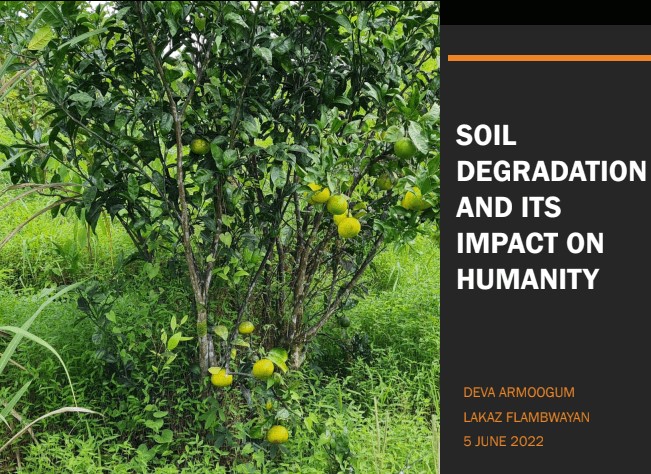
SOIL DEGRADATION AND ITS IMPACT ON HUMANITY by Deva Armoogum and Lakaz Flambwayan
Tipping points and complex adaptive systems
1. They are multifaceted and multilayered
2. They are self-organizing: they may arrange themselves into new states.
3. Evolve and adapt: They can alter in both reactive and adaptive ways.
4. Include elements of spontaneous emergence (e.g., attaining an unanticipated or wholly unforeseen state).
5. Tipping points: moments of abrupt major shift or collapse.
6. Points of no return: movement towards a tipping point.
7. Have both linear and nonlinear cause-and-effect relationships
8. Have the ability to alter quickly and are very unpredictable
Soil ecosystem and complexity

Numbers of organisms in the soil

Menu a la carte: How microbes supply nutrients on demand

Anyone heard of Mycobacterium Vaccae ?

There is an intriguing association between these bacterium, brain inflammation and mood.
The presence of these bacterium in our microbiome can help to reduce inflammation and its consequences.
Found in dirt that we breath and ingest when we spend time in nature.
Creates a mood of happiness that can last for up to 3 weeks
Human evolution: agricultural and industrial revolution
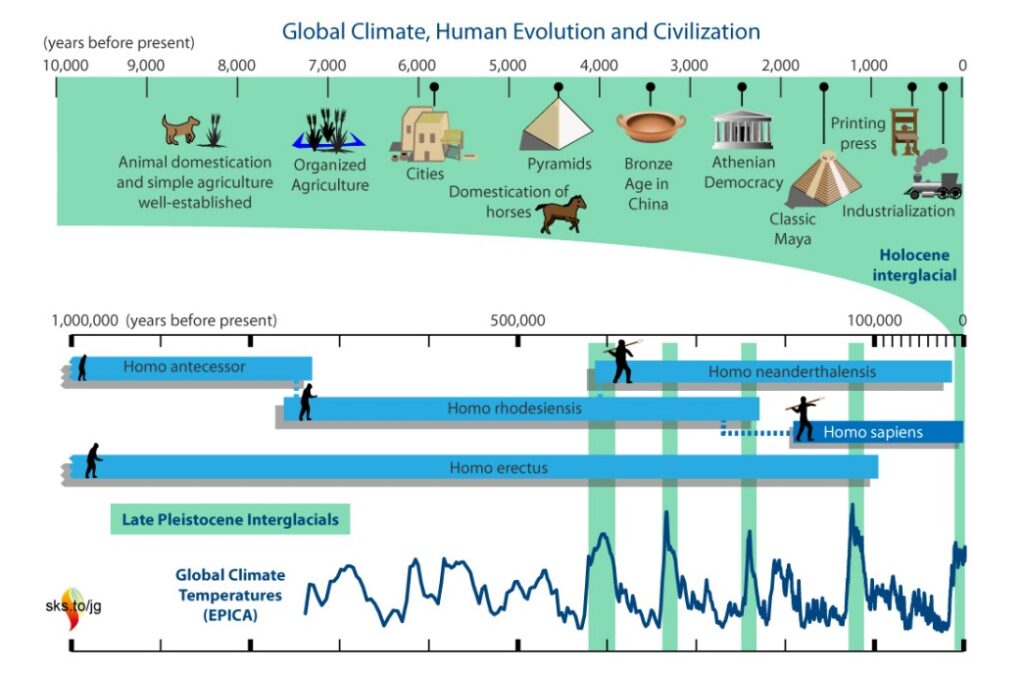
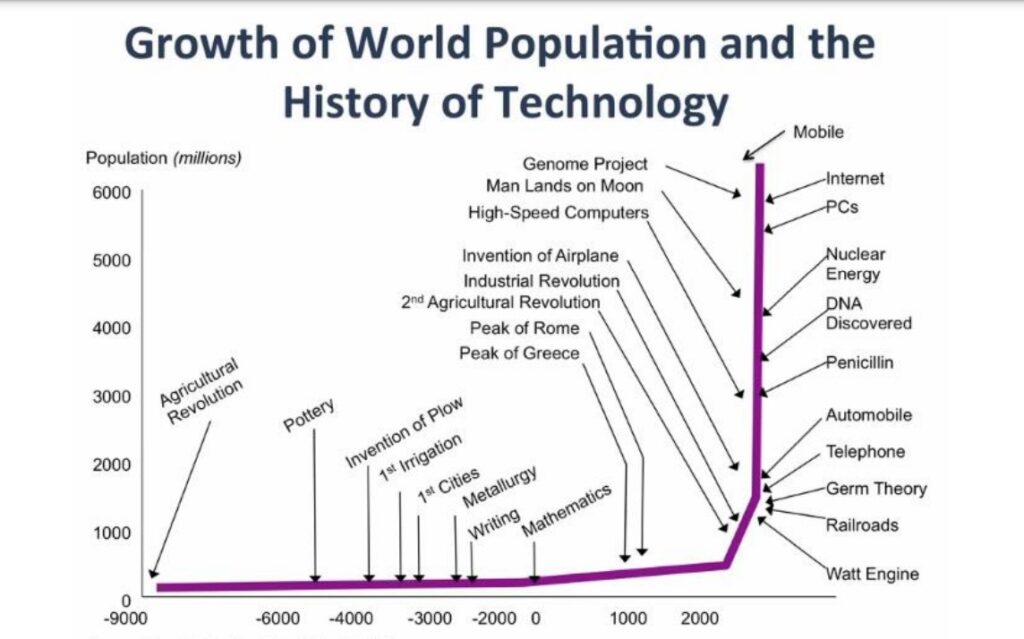
Human destruction life sustaining ecosystem
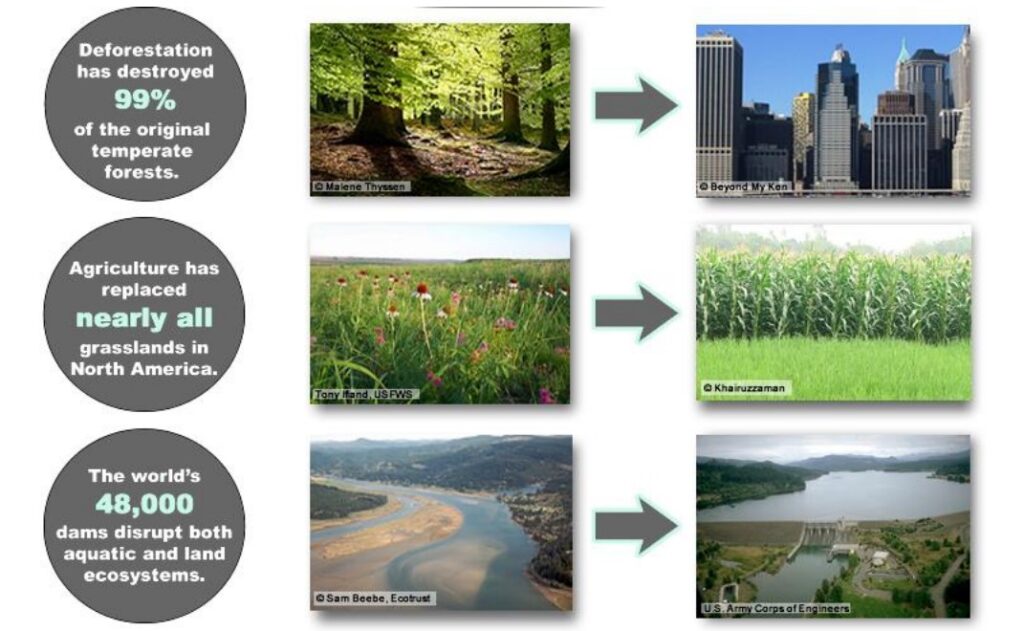

Four of the nine planetary limits have been breached, all of which are associated with land depletion or soil degradation.
Code RED for humanity !

According to the IPCC assessment, global warming is wreaking havoc on the planet and is increasing as sea levels rise, ice melts, and extreme weather events such as heatwaves, droughts, floods, and stronger storms intensify.
Population and agriculture


FAO: Revised World Soil Charter (2015)
- Soils are a critical enabling resource, essential to the production of a wide range of commodities and services critical to ecosystems and human well-being. Maintaining or improving global soil resources is critical if humanity’s overarching needs for food, water, and energy security are to be addressed.
- The anticipated increases in food, fiber, and fuel production necessary to attain food and energy security will put additional strain on the soil.
- Soil degradation diminishes or eliminates soil functions and the ability of soils to sustain ecosystem services critical to human well-being. To retain the services offered by all soils, severe soil degradation must be reduced or eliminated.
Types and causes of soil degradation


Soil which has lost its structure due to compaction
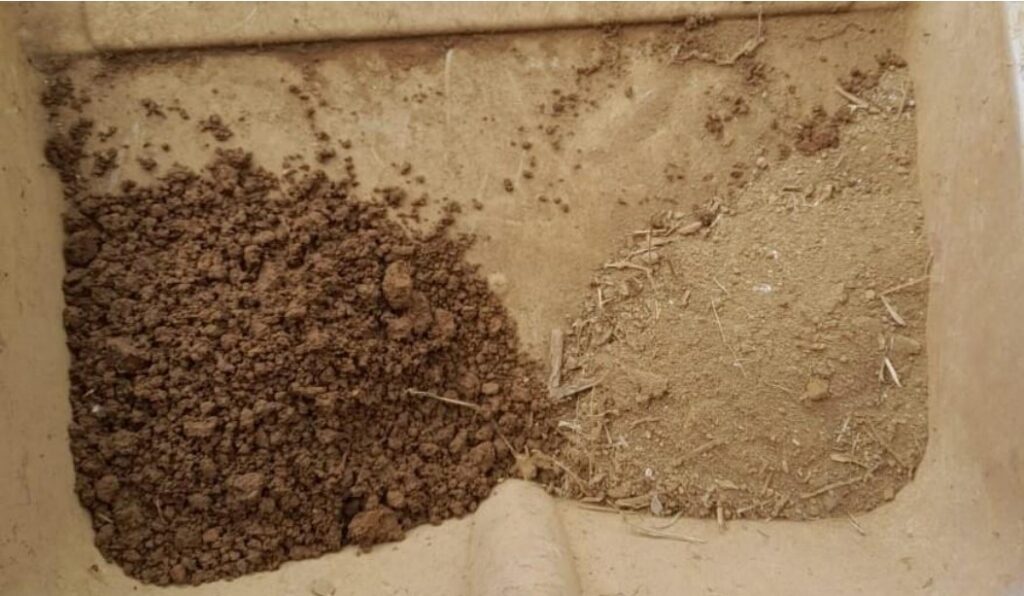
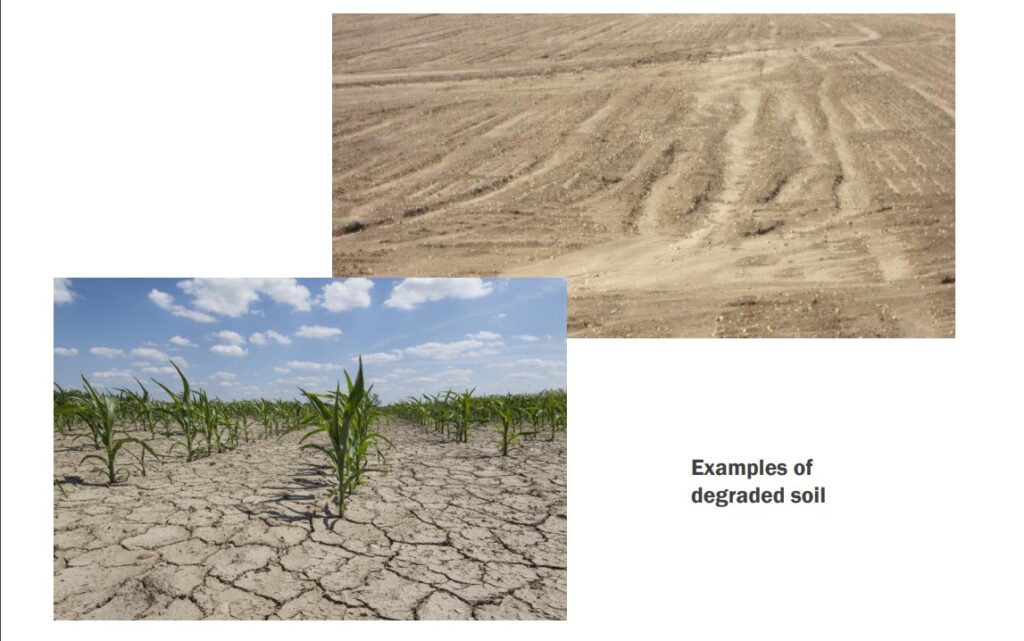
Consequences of land degradation

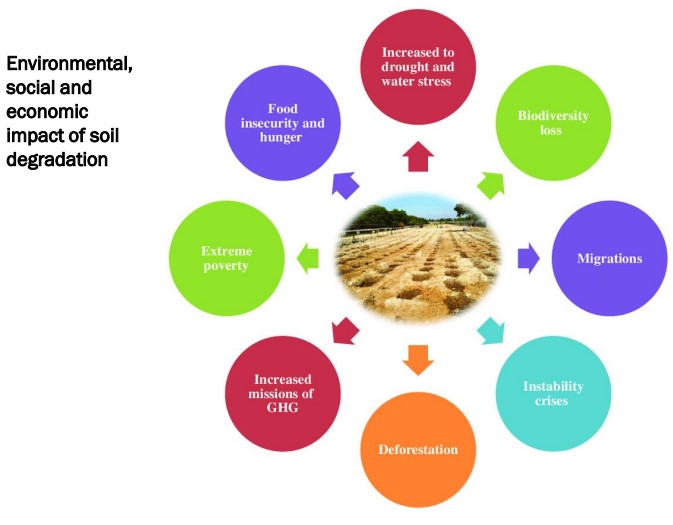
Impact of soil degradation and desertification on human health
• More malnutrition threats from reduced food and water supplies;
• More water- and food-borne diseases caused by poor hygiene and a lack of clean water;
• Respiratory diseases caused by atmospheric dust from wind erosion and other air pollutants;
• Spread of infectious diseases as populations migrate;
• Loss of bio-diversity reduces availability of medicinal plants and spread of infectious diseases;
• A bad soil biome leads to a poor gut biome, which results in decreased well-being.
Healthy soil > Healthy plants > Healthy humans
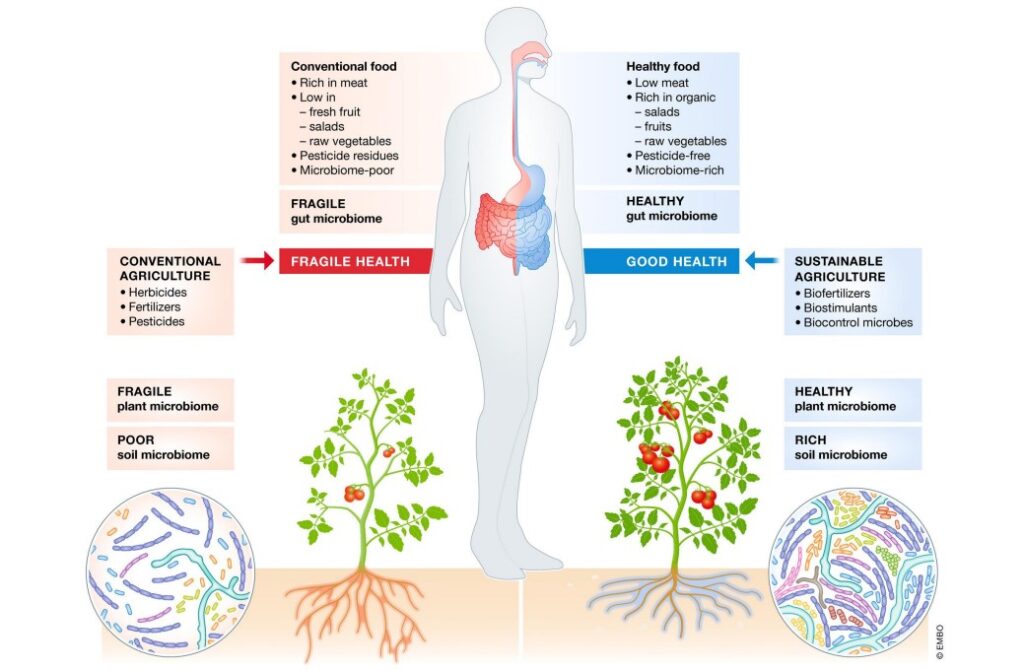
On the threshold of a new era
Eating the appropriate foods may rescue both the world and human health, and these foods can only come from healthy soils generated through regenerative agricultural methods. In the process, the negative environmental consequences of industrial agriculture are reversed, and bio-dynamic systems build increased resistance against pests and illnesses, with direct implications for human immune systems and general well-being.
This must be backed by an economic and financial system that aspires for a more equal division of costs and rewards, with the agricultural community playing a prominent role in this revolutionary moment.
Source:
A new economic paradigm: from sustainability to regeneration
Deva Armoogum
Conjoncture #112- Jul-Aug 2021
If individuals ate really nutrient-dense food grown in good soil, the national health cost would be drastically reduced.
The large chemical and food corporations are well aware of what they are doing. It is currently killing millions of people; explain me how it isn’t genocide.”
Source: Dr Charles Massy PhD Human Ecology
How about Mauritius?
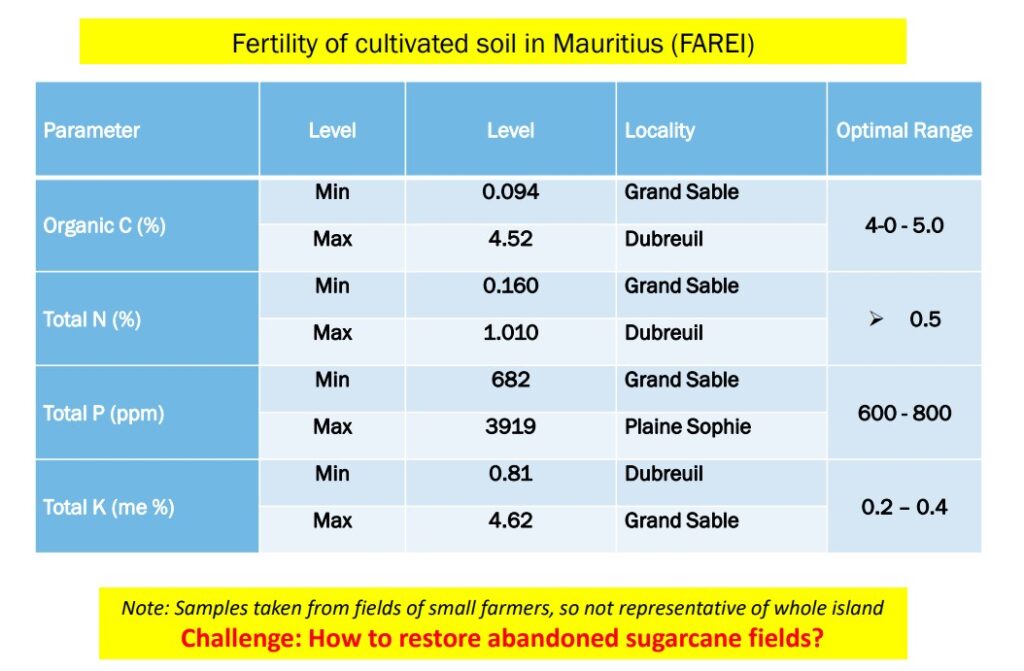
Challenges for Mauritius
- How to Stop Deforestation
- How to Prevent the
- Conversion of Agricultural Land
- How to Restore Abandoned Sugarcane Plantations
- How to Improve Land Access
- How to Make the Switch to Regenerative Agriculture
- How to Deal with Food Insecurity
- How to Reduce Pesticide Residues
- How to Encourage Young Agri-Entrepreneurs
LEARNING MORE
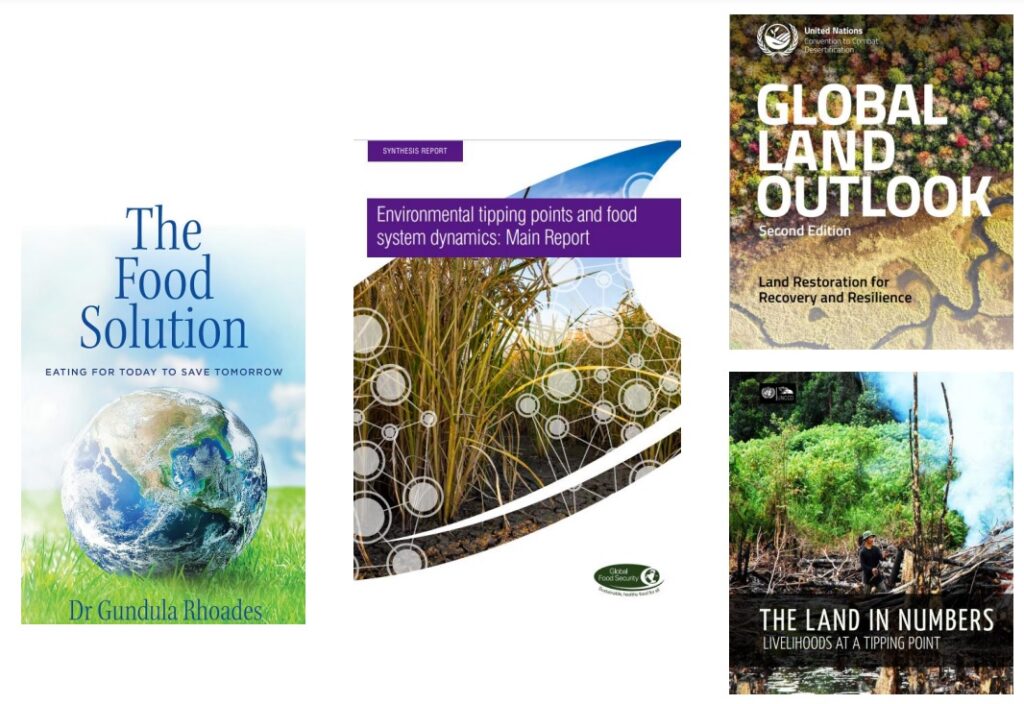
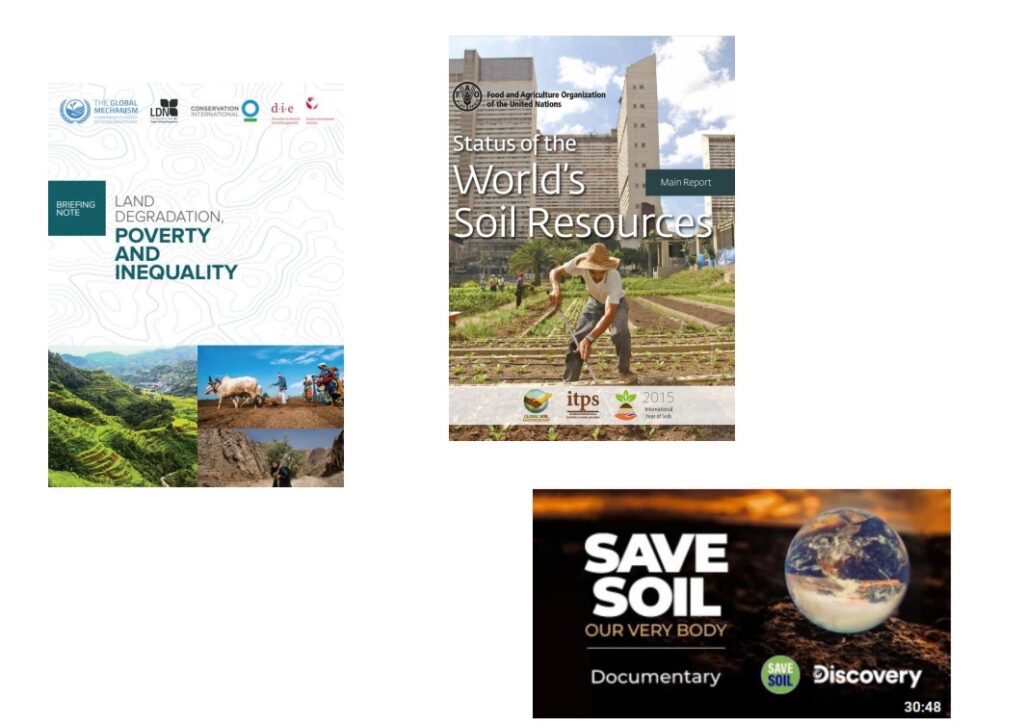
Source:
Author: DEVA ARMOOGUM
LAKAZ FLAMBWAYAN
5 JUNE 2022
Search

